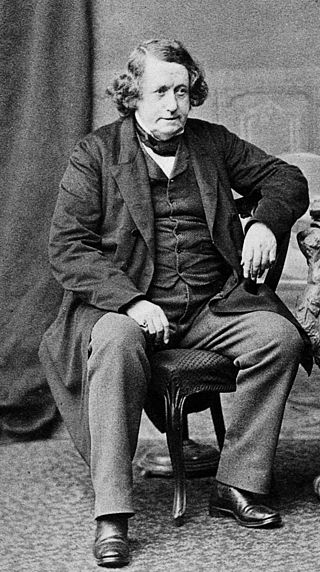Punctuating may refer to
- Punctuation, in written language
- A method of cheating in poker with marked cards
- Punctuated equilibrium
Punctuating may refer to
Gradualism, from the Latin gradus ("step"), is a hypothesis, a theory or a tenet assuming that change comes about gradually or that variation is gradual in nature and happens over time as opposed to in large steps. Uniformitarianism, incrementalism, and reformism are similar concepts. For the Social democratics, the socialist society is achieved through gradualism.

In evolutionary biology, punctuated equilibrium is a theory that proposes that once a species appears in the fossil record, the population will become stable, showing little evolutionary change for most of its geological history. This state of little or no morphological change is called stasis. When significant evolutionary change occurs, the theory proposes that it is generally restricted to rare and geologically rapid events of branching speciation called cladogenesis. Cladogenesis is the process by which a species splits into two distinct species, rather than one species gradually transforming into another.
Sting may refer to:
Berechiah ben Natronai Krespia ha-Nakdan was a Jewish exegete, ethical writer, grammarian, translator, poet, and philosopher. His best-known works are Mishlè Shu'alim and Sefer ha-Ḥibbur.
A rhetorical question is a question asked for a purpose other than to obtain information. In many cases it may be intended to start a discourse, as a means of displaying or emphasizing the speaker's or author's opinion on a topic.
Stasis may refer to:

Hugh Falconer MD FRS was a Scottish geologist, botanist, palaeontologist, and paleoanthropologist. He studied the flora, fauna, and geology of India, Assam,Burma, and most of the Mediterranean islands and was the first to suggest the modern evolutionary theory of punctuated equilibrium. He studied the Siwalik fossil beds, and may also have been the first person to discover a fossil ape.

Ozma is the second studio album by the Melvins, released in 1989 through Boner Records. It is the first Melvins album to feature Lori Black on bass guitar and was recorded when the band relocated to San Francisco.
Interspersed repetitive DNA is found in all eukaryotic genomes. They differ from tandem repeat DNA in that rather than the repeat sequences coming right after one another, they are dispersed throughout the genome and nonadjacent. The sequence that repeats can vary depending on the type of organism, and many other factors. Certain classes of interspersed repeat sequences propagate themselves by RNA mediated transposition; they have been called retrotransposons, and they constitute 25–40% of most mammalian genomes. Some types of interspersed repetitive DNA elements allow new genes to evolve by uncoupling similar DNA sequences from gene conversion during meiosis.

John Rooney is an American sportscaster, currently best known as a play-by-play announcer for radio broadcasts of Major League Baseball's St. Louis Cardinals.

Phyletic gradualism is a model of evolution which theorizes that most speciation is slow, uniform and gradual. When evolution occurs in this mode, it is usually by the steady transformation of a whole species into a new one. In this view no clear line of demarcation exists between an ancestral species and a descendant species, unless splitting occurs. The theory is contrasted with punctuated equilibrium.
Punctuated gradualism is a microevolutionary hypothesis that refers to a species that has "relative stasis over a considerable part of its total duration [and] underwent periodic, relatively rapid, morphologic change that did not lead to lineage branching". It is one of the three common models of evolution.
"What a piece of work is a man!" is a phrase within a monologue by Prince Hamlet in William Shakespeare's play Hamlet. Hamlet is reflecting, at first admiringly, and then despairingly, on the human condition.
A cover letter, covering letter, motivation letter, motivational letter, or a letter of motivation is a letter of introduction attached to or accompanying another document such as a résumé or a curriculum vitae.

"If You Ever Stop Loving Me" is a song by Bob DiPiero, Rivers Rutherford and Tom Shapiro and recorded by American country music duo Montgomery Gentry. It was released in February 2004 as the first single to the duo's 2004 album You Do Your Thing. The song became their first number one single on the US Billboard Hot Country Songs charts. It also was their biggest crossover hit on the Billboard Hot 100, where it reached number 30.

Soundtrack to a Generation is a compilation album by British band The Human League. It was released in Europe on 30 July 1996.

"Rockin' Back Inside My Heart" is a song by American singer, songwriter and actress Julee Cruise, released in 1990 as the second single from her debut album, Floating into the Night (1989). It was released on Warner Bros. Records. Cruise performs the song in "Episode 14" of American mystery serial drama television series Twin Peaks, the long-anticipated episode of the show in which the killer of Laura Palmer was finally revealed after a year of anxious, media-driven anticipation. Cruise also sings "Rockin' Back Inside My Heart" in Industrial Symphony No. 1, another David Lynch project.
"Special Occasion" is a 1968 hit single recorded by Motown Records R&B group Smokey Robinson and The Miracles, issued by its Tamla Records subsidiary and taken from the album of the same name. It was written and composed by Miracles lead singer Smokey Robinson and Motown staff songwriter Al Cleveland, the authors of the group's Top 10 million-selling smash, "I Second That Emotion", the previous year.
A rimshot is a percussion technique used to produce an accented snare drum backbeat.
The Velthuis system of transliteration is an ASCII transliteration scheme for the Sanskrit language from and to the Devanagari script. It was developed in about 1983 by Frans Velthuis, a scholar living in Groningen, Netherlands, who created a popular, high-quality software package in LaTeX for typesetting Devanāgarī. The primary documentation for the scheme is the system's clearly-written software manual. It is based on using the ISO 646 repertoire to represent mnemonically the accents used in standard scholarly transliteration. It does not use diacritics as IAST does. It may optionally use capital letters in a manner similar but not identical to the Harvard-Kyoto or ITRANS schemes.manual para 4.1